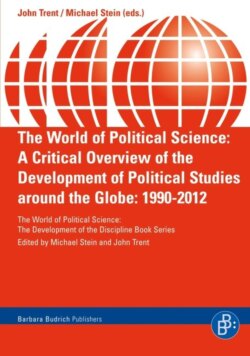Читать книгу The World of Political Science - Группа авторов - Страница 17
На сайте Литреса книга снята с продажи.
4.2. Sociology of Korean Political Scientists
ОглавлениеThe size of the Korean political science community is about 2,500. It has expanded threefold since the democratization of its regime. Its foreign Ph.D.s amount to 1,500. Among foreign countries where Ph.D.s are bestowed, the United States is number one, recording more than 500. It is very interesting to see that of all the universities in the United States, Missouri, Northwestern, Michigan, Hawaii, Ohio State, Southern California, Chicago, Indiana, and Texas produced most of the Ph.D.s for Koreans, in that order. Also very interesting is the fact that some non-American universities also produced many Ph.D.s for Koreans including the Free University of Berlin, Peking University, the University of Paris, the National Chengchi University (Taiwan) and the University of Tokyo had each produced between 16 and 25 Ph.D.s for Koreans, as of 2006. One can see that in order not to fall into a “neo-colonial” trap, the impulse to diversify the foreign countries in which to pursue advanced degrees seems to be strong despite the dominance of universities from the United States.
When speaking of the sociology of political scientists in Korea, one cannot avoid mentioning the space in which Korean political scientists are placed. First, professors constitute a corner of a privileged elite in Korea. Unlike in Japan, the number of professors is very small, perhaps less than one fifth, even controlling for population size. Second, the presidential system enables presidents to hire academics as their braintrusts and instruments to do their bidding. Placing academics into the position of prime minister, foreign minister or economics minister not only accords a modicum of legitimacy to the regime, but also enhances their rule with various types of expertise which military generals or professional politicians do not necessarily have. The temptation for academics to be coopted into politics cannot be underestimated in Korea. Third, the mass media also attracts academics into these extraincome sources. Televisions, newspapers and magazines generate space for such academics to reach out to society at large, rather than confining themselves to their small professional cosmos. The temptation cannot be underestimated here also. One of the outcomes of these social forces is that a huge number of American Ph.D.s, once back at home, soon stop publishing scholarly works in English, and busy themselves with writing in Korean for wider audiences than academics.
